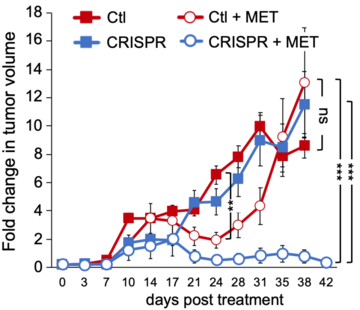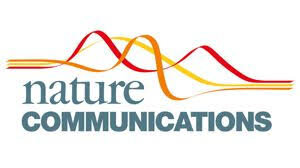Alcalá S, Sancho P, Martinelli P,... Sainz B Jr. ISG15 and ISGylation is required for pancreatic cancer stem cell mitophagy and metabolic plasticity
Nat Commun. 2020
"Cancer stem cells are not invincible, they have weaknesses, and we believe that ISG15 represents a viable anti-CSC target - time will tell"
- Dr. Bruno Sainz Anding -
Summary:
Pancreatic cancer stem cells (PaCSCs) drive pancreatic cancer tumorigenesis, chemoresistance and metastasis. While eliminating this subpopulation of cells would theoretically result in tumor eradication, PaCSCs are extremely plastic and can successfully adapt to targeted therapies. In this study, we demonstrate that PaCSCs increase expression of interferon stimulated gene 15 (ISG15) and protein ISGylation, which are essential for maintaining their metabolic plasticity. CRISPR-mediated ISG15 genomic editing reduces overall ISGylation, impairing PaCSCs self-renewal and their in vivo tumorigenic capacity. At the molecular level, ISG15 loss results in decreased mitochondrial ISGylation concomitant with increased accumulation of dysfunctional mitochondria, reduced oxidative phosphorylation (OXPHOS) and impaired mitophagy. Importantly, disruption in mitochondrial metabolism affects PaCSC metabolic plasticity, making them susceptible to prolonged inhibition with metformin in vivo. Thus, ISGylation is critical for optimal and efficient OXPHOS by ensuring the recycling of dysfunctional mitochondria, and when absent, a dysregulation in mitophagy occurs that negatively impacts PaCSC stemness.
Why do you highligth this publication?
This study has revealed the importance of ISG15 and ISGylation in PaCSCs. Like ubiquitin, ISG15 forms chains on target proteins via a process known as ISGylation. It is believed that ISGylation protects proteins from ubiquitin-mediated degradation. Thus, the fact that PaCSCs overexpress ISG15 and have increased ISGylation sheds light on a post translational modification process that is likely very important for these cells. While we hypothesize that ISGylation affects numerous biological pathways, in this study we have discovered a role for ISg15 in PaCSC metabolic plasticity. Specifically, genetic elimination of ISG15 makes PaCSCs highly susceptible to metabolic inhibitors, like metformin. We believe that targeting ISG15 and ISGylated proteins may have many more biological consequences, and thus this study has only discovered the tip of the ISG15 iceberg.
Publication commented by:
Dr. Bruno Sainz
Instituto de Investigaciones Biomédicas "Alberto Sols" CSIC-UAM
Autónoma University of Madrid (UAM), Department of Biochemistry
IRYCIS



